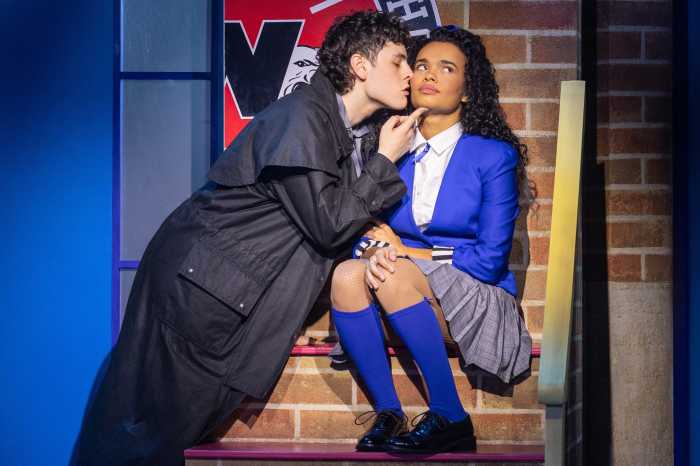“[Expletive] A” runs through Oct. 8 and “In the Blood” runs through Oct. 15 at the Pershing Square Signature Center. 480 W. 42nd St., signaturetheatre.org
The origin story of Suzan-Lori Parks’ “The Red Letter Plays” goes something like this: In the 1990s, the African-American playwright was canoeing with a friend and declared she was going to write a contemporary version of “The Scarlet Letter” and call it “[Expletive] A.”
Parks went on to write not one but two plays (“[Expletive] A” and “In the Blood”) inspired by Nathaniel Hawthorne’s 1850 romance novel pitting a woman found guilty of adultery against a strict Puritan society.
Both of the plays depict a mother named Hester who has been branded as an outcast and struggles to survive. They are packed with ominous tones, intense emotions, freewheeling theatricality, social criticism and an inevitable sense of tragedy.
The Signature Theatre (where Parks is one of several playwrights-in- residence) is presenting both plays simultaneously, each in a different space within the multi-theater complex and with a different cast and production team.
“[Expletive] A” (2000) is an explosive combination of gory 17th-century revenge tragedy, “Sweeney Todd,” cabaret performance, confrontational direct address and class warfare. Here, Hester (Christine Lahti) has literally been branded with an “A” because she works as an abortionist.
She seeks to reunite with her estranged and incarcerated son (Brandon Victor Dixon) and avenge the wrongs perpetrated against her family.
Director Jo Bonney gives the production an electrifying edge, with the broad performances of the supporting players (including Marc Kudisch as the local mayor) played against the protagonists’ grim circumstances.
“In the Blood” (1999) is the more serious and sensitive of the two plays. Here, Hester (Saycon Sengbloh) is a homeless, kindhearted, illiterate mother with five children from five different estranged fathers.
In spite of some slow patches (including confessional monologues), Sarah Benson’s two-hour, intermission-free production has a scorching brutality, which grows in intensity as the play heads to its violent climax.
Each production is an outstanding staging of a bold, difficult and provocative work. When viewed together, “The Red Letter Plays” proves to be one of the most interesting and rewarding theater events of the fall.


































